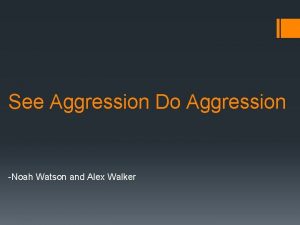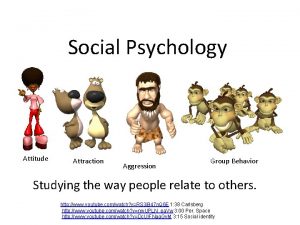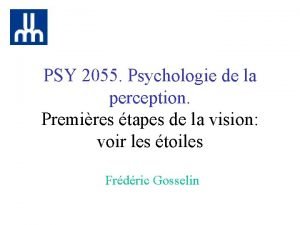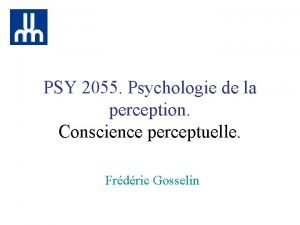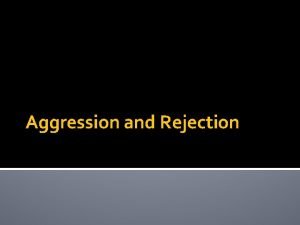Physiology and Psychology of Violence and Aggression PSY










- Slides: 10

Physiology and Psychology of Violence and Aggression PSY 307 Doug Stenstrom dstenst@calstatela. edu (323)343 -2258 Office Hours: Monday 1: 00 -3: 00, 5: 00 -7: 00 other times by appointment

Syllabus • Contact Information – Come to office hours! – Please don’t do Web. CT emails • Required Text – Textbook. Empirical Articles – Readings for first few weeks PDF’ed on Web. CT • • Course Schedule Attendance/Participation Question/Day Grading = 1000 points – Quizzes – Writing Assignments – Exams • Late Policy

Some helpful suggestions about how to do well in this class… • Pay attention to the syllabus • Attend every class, and be on time – Research shows attendance ↑ performance • Read assigned chapters before each class – Research shows reading before class ↑ performance • Ask questions during class, take notes – Questions and comments are encouraged • Power. Point on Web. CT night before class – Feel free to print them out as “Notes” • Learning Tip - “Why should I care? ”

What is Psychology? • The scientific study of affect, behavior, cognition, and physiology/biology. - Cognition: Internal mental processes of the individual Affect: Subjective feeling states Behavior: Any action that can be observed and recorded Physiology/Biology: How body/brain influence above three • The scientific study of “people” in “situations”. (after this slide, none of the information about “what is psychology? ” is on the exam)

The field of psychology… • … started when “Philosophy” started collecting data around 1830 s. • … applies the “scientific method” to psychological inquiry. • . . . large number of disciplines, fields, topics, people, etc.


The field of psychology… • … started when “Philosophy” started collecting data around 1830 s. • … applies the “scientific method” to psychological inquiry. • . . . large number of disciplines, fields, topics, people, etc. • … split between “professional practice” and “research/teaching”

Where do Psychologist work? “Professional Practice” places “Research/Teaching” topics

The field of psychology… • … started when “Philosophy” started collecting data around 1830 s. • … applies the “scientific method” to psychological inquiry. • . . . large number of disciplines, fields, topics, people, etc. • … split between “professional practice” and “research/teaching” • … split between “abnormal” and “normal” • … Psych. INFO has more than 2. 8 million records as of March 2010

To do by next class: • • Access class website on Web. CT Take the online survey (Announcements) Order the textbooks Read chapters (can download from Web. CT)


